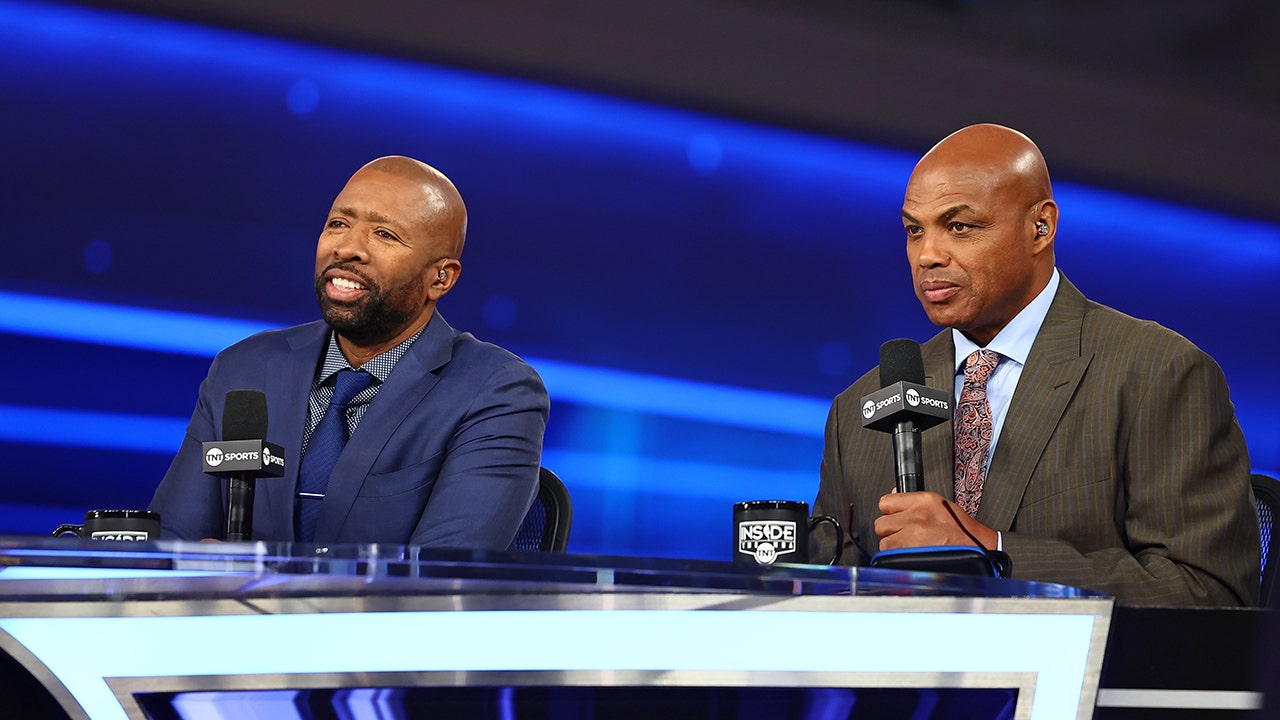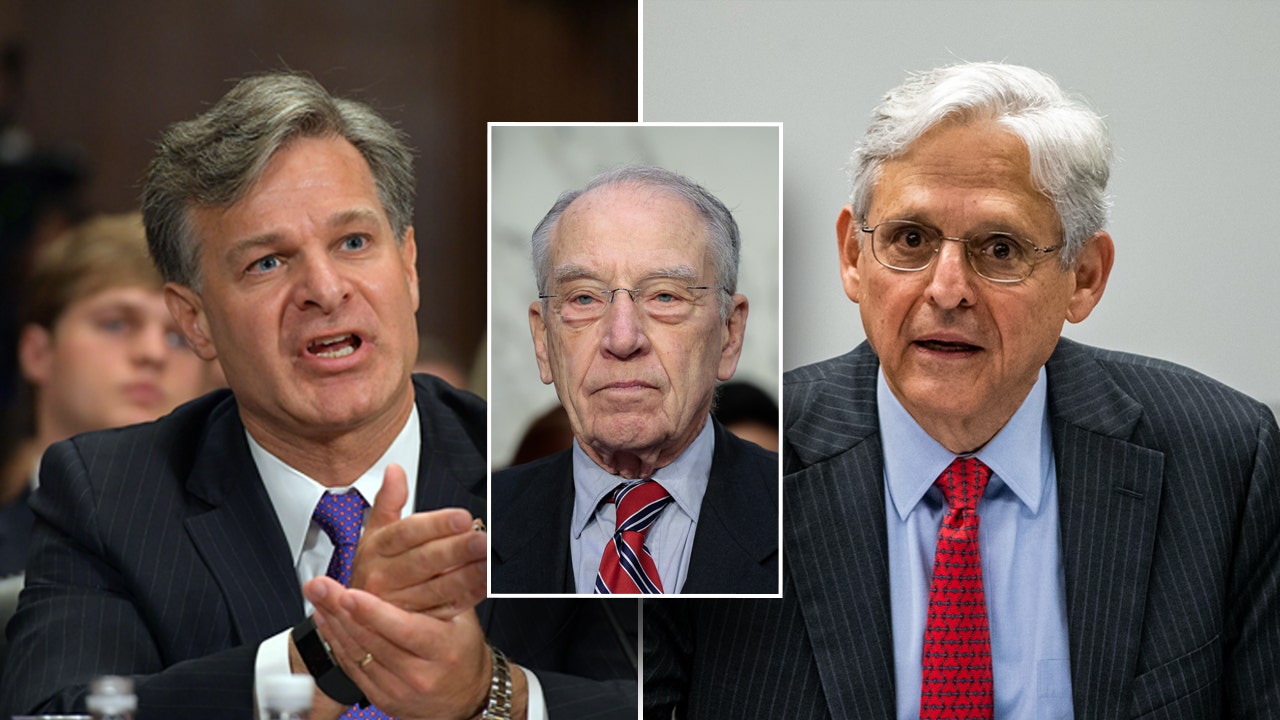Vermont
‘True Vermont legend’: NASCAR Hall of Famer Ken Squier dies at 88

Ken Squier, founder of Barre’s Thunder Road, co-founder of the Motor Racing Network, a NASCAR Hall of Famer and a broadcasting legend for decades for Vermonters, the region and the nation, died Wednesday night. He was 88.
Squier, who had recently moved into hospice care, according to Motor Racing Network’s Dave Moody, is credited with being the first person in getting flag-to-flag coverage of auto racing on television when CBS aired the Daytona 500 in 1979. During that race, Squier narrated the iconic, last-lap fight between Cale Yarborough and Donnie Allison, according to USA TODAY.
Squier also helped the Daytona 500 earn its nickname “Great American Race,” and his involvement in NASCAR, its introduction to mainstream America and the growth of stock car racing cannot be understated, according to USA TODAY.
“I grieve for the loss of my dear friend and lifelong mentor, but rejoice in the fact that his pain and struggle are over,” Moody posted on his Twitter page on Thursday morning.
In a statement, Vermont Gov. Phil Scott, a Thunder Road champion, said “we mourn the loss of a true Vermont legend and dear friend to me and so many others.”
“His impacts on the sport are too numerous to count, and he deserves every one of those recognitions and many more,” Scott’s statement read in part. “But for me, what I will remember most was his friendship and deep devotion to his community, which was the entire state. Ken was always looking for opportunities to give back and help those in need. He instilled those values as the backbone of Radio Vermont, which has been an essential part of the fabric of Vermont since its creation – always finding new ways to support more and more Vermonters.
“I will always cherish the memories of all the time we spent together, and be thankful for his mentorship, humor, creativity and passion. From the booth, he often described those racing as ‘common men doing uncommon things.’ But in reality he was describing himself — because Ken was indeed a very common man who did extraordinary things,” Scott wrote.
Born on April 10, 1935, Squier quickly became involved in the family-owned and operated WDEV radio station in Waterbury. In 1960, Squier opened Thunder Road International Speedbowl to a full crowd, according to Thunder Road news release announcing Squier’s passing. Squier created big racing events such as the Labor Day Classic, Memorial Day Classic, Vermont Governor’s Cup and the Vermont Milk Bowl.
In the years that followed, Squier continued to elevate athletes to heroic status whether through national television coverage of NASCAR events on CBS, TNN and TBS and the Winter Olympics, announcing stock car races across the Northeast or play-by-play on WDEV Radio coverage of local high-school and college sports, the Thunder Road release stated.
Squier and Tom Curley, who together created the American-Canadian Tour in 1979, bought back Thunder Road in 1982, and helped turn the Barre speedbowl, called “The Nation’s Site of Excitement” into one of the nation’s top short tracks, Thunder Road said. In 2017, Squier and Curley sold Thunder Road to Vermont businessman Pat Malone and former Thunder Road champion Cris Michaud, finalizing the sale shortly before Curley’s death.
Squier is also a member of the New England Auto Racing and American Motorsports halls of fame. He was inducted into the NASCAR HOF in 2018.
According to Thunder Road, funeral arrangements for Squier have yet to be made.
Editor’s note: USA TODAY contributed to this story.
Contact Alex Abrami at aabrami@freepressmedia.com. Follow him on Twitter: @aabrami5.

Vermont
Vermont bus journey: Pushing public transit to limits – Valley News

Kellen Appleton is a regular rider on the Advance Transit buses that run in and around her hometown of Lebanon. But recently, Appleton got to thinking: How far could local buses, like the ones she relies on in the Upper Valley, really take her?
Earlier this month, she set out with her housemate, Ana Chambers, to put the question to the test — at least, within the confines of Vermont. The duo rode what they think was the longest-possible trip across the state, within a single day, using only public buses.
The journey, which Appleton documented on Instagram, started just below Vermont’s southwestern corner in Williamstown, Mass. Eleven hours and seven different buses later, they made it to St. Johnsbury, Vt., in the heart of Vermont’s Northeast Kingdom.
The goal? To “kind of push the public transit system to its limits,” said Appleton, who works for a regional planning commission based in Weathersfield, in an interview.
There are certainly more convenient ways to get across the state, even using transit. Amtrak runs two trains through Vermont that ultimately connect to New York City, for example, while Greyhound buses traverse the state between Boston and Montreal.
But Appleton said she and Chambers wanted to make their trip as challenging as possible by relying only on public transit that, unlike Amtrak or Greyhound, could not be booked ahead of time. They also wanted to use routes that ran on fixed schedules, which ruled out using microtransit services that can be called on demand.
In all, they paid just a single, $2 fare the entire day — “a bargain, right?” she said.
Appleton and Chambers’ trip started with a 7:15 a.m. ride on The Green Mountain Express’ Purple Line from Williamstown, Mass., north across the state line to Bennington, Vt. From there, they caught a Green Mountain Express Orange Line bus to Manchester, Vt., and then a ride on The Bus, run by the Marble Valley Regional Transit District, into Rutland.
From Rutland, they took a Tri-Valley Transit bus to Middlebury, Vt., then another bus from that same operator to Burlington. From there, they rode a Green Mountain Transit Montpelier LINK Express bus to the capital. Finally, from Montpelier, they took Rural Community Transportation’s U.S. 2 Commuter to St. Johnsbury, stepping off for the last time at 6:30 p.m.
Appleton said she was pleasantly surprised by how it was possible to make so many different bus connections throughout the state. It was a testament to the local transit agencies, she said, that each bus ran close enough to its listed schedule that she and Chambers could actually stick with the route they’d carefully planned ahead of time.
She noted, though, that some of the agencies’ schedules aligned for a transfer only once a day — or left just minutes to spare — meaning a single substantial delay could have scuttled the plan. That’s hard to complain about for a trip, like theirs, that was fairly impractical by design, she said. But she added that the “fragile” nature of parts of the itinerary underscored how difficult it can be for many people to rely on public transit for their needs.
Having more regularly scheduled bus service, especially serving rural communities, could encourage more intercity trips without a car, Appleton said.
Vermont spends more money on public transit than other similarly rural states, according to a 2021 report, though state lawmakers continue to debate whether to increase that funding in an effort to help the state make progress toward its climate goals.
Frequent transit service is “something that’s going to help a lot of people take that leap from, ‘I need to have a car to be independent and be a functional person as a part of society,’ to, ‘I can rely on the systems that we’ve put in place here,’” she said.
At the same time, she noted every bus she and Chambers took had at least one other person on board. While many transit routes are scheduled around commuters traveling only in the morning or the evening, she said, the trip was a reminder that there are people who likely don’t have cars, using those services at all times of day.
She documented some of the day’s more memorable characters in an Instagram post. That included a man in Bennington, clad in a rainbow bomber jacket and white stone earrings, who was accompanying his young daughter — herself in a fur coat — on the bus to school. Two friends realized onboard, excitedly, that they were taking the bus to the same destination: a methadone clinic that opened in Bennington earlier this year. Three other riders from the Bennington area, all in high school, spent the ride discussing “the fall of communism,” Appleton recalled.
In Rutland, three friends boarded the bus and, with reggae music playing from a phone, unpacked a very different topic — which version of the video game series “Grand Theft Auto” was the best. Another rider worked at a cafe in Middlebury and, upon being asked if the cafe still served ice cream in October, responded: “Hell yeah we are. Follow me.”
A “harried commuter” with a tattoo of Bernie Sanders boarded in Montpelier, Appleton recalled, traveling with an electric bicycle and “alternating sips of coffee, ginger ale, and water the entire bus ride.” The bus to Burlington, meanwhile, had a student on board who revealed the purpose of his visit to a friend just before stepping off, Appleton wrote: “I’m here to see my BOYFRIEND.”
The trip, which would take about three hours by car, also gave Appleton and Chambers a new perspective on towns they might have driven through before — but had never been able to take the time to look around, Appleton said. She said the trip was inspired, in part, by a genre of YouTube videos that feature people taking similarly impractical trips on public transportation and sharing the sights along the way.
“Now, I have some touch point, or some anecdote, or have some connection, to (each) place — and that makes me feel like I’m a little bit more at home than I would be otherwise,” she said.
“Was it practical? No. But like, was it a great time? 100%.”
This story was republished with permission from VtDigger, which offers its reporting at no cost to local news organizations through its Community News Sharing Project. To learn more, visit vtdigger.org/community-news-sharing-project.
What to Read Next
Vermont
St. Albans sets up tip line to track down offensive odor near dairy plant

The city of St. Albans is amplifying its efforts to track down the source of an offensive odor that’s been wafting through part of a downtown neighborhood since the beginning of the year.
City Manager Dominic Cloud said officials have launched a telephone hotline to allow city residents, and visitors, to report when they smell the strong odor, which Cloud said the city thinks is coming from the Dairy Farmers of America milk processing plant.
“We’ve tried to activate the community around the co-op who was complaining,” Cloud said during a recent interview. “I don’t want to be in a place six weeks from now where they’re saying, ‘You didn’t do enough to protect us,’ so I need their assistance in that effort.”
The St. Albans Messenger, which has been chronicling the odor saga, reported the news of the hotline last week.
According to Cloud, the offensive odor, which he said smells like sulfur and rotting animal flesh, was detected soon after the owners of the Dairy Farmers of America plant completed some work on their wastewater treatment system in January.
Since then, the city and the dairy plant have been battling over where the smell is originating.
Elodie Reed
/
Vermont Public
According to Cloud, representatives from the dairy plant have been coming to city council meetings and promising to install filters and add chemicals to its wastewater system to cut down on the smell.
“The creamery has taken several actions to ensure that odor emissions are appropriately managed,” Dairy Farms of America spokesperson Kim O’Brien said in a written statement. “Most recently we engaged a third-party consultant to perform odor monitoring. Odor monitoring at the site is ongoing, and these results will inform appropriate next steps at the creamery.”
But the smell is still strong, Cloud said, and so he is now gathering reports from the new phone tip line, and preparing for the city’s next move, which could include taking the company to court.
That’s not a step the city, which proudly identifies with its dairy farming heritage, is eager to take.
“It’s not a great space for me to have to square off against a major employer and a large section of our tax base,” Cloud said. “That’s why I resisted for six months, but I couldn’t resist any longer and we were unhappy with the pact in which they were solving it.”
Cloud said plant officials have both denied that the smell was coming from the plant while also saying they were addressing the issue.
The stench worsened during the summer, Cloud said, and as it continues into fall, the city is seriously contemplating taking stronger action.
“For more than 100 years the creamery has been an important fixture in Vermont’s dairy industry,” O’Brien wrote in her email comment. “We have made significant investments in this plant and the community. As we work to address this complex issue we appreciate constructive engagement with our neighbors and the city.”
Vermont
Plan for the future with Vermont Public and FreeWill

As Vermont Public adapts to the loss of federal funding, we’re focused on building a more sustainable future through diverse and resilient sources of support. We also know that many of our listeners, viewers, and readers want to do even more to strengthen this essential public service.
That’s why we’ve partnered with FreeWill — a free, easy-to-use online tool that helps you create or update your will in as little as 20 minutes, at no cost.
Just as Vermont Public works every day to keep our communities informed, entertained, and connected, we also want to help you protect what matters most and plan confidently for the years ahead.
This week is National Estate Planning Awareness Week, a great time to think about:
- Cultivating peace of mind for you and your loved ones
- Ensuring your assets go to the people and causes you care about
- Naming someone to make health care decisions on your behalf if you’re unable to do so
By taking these steps today, you can protect your family’s future — and help ensure Vermont Public remains a strong, trusted source of news and storytelling for generations to come.
Together, we’re empowering public service journalism and the future of connection across Vermont.
Get started with FreeWill
If you’ve already included a gift to Vermont Public in your will, we’d love to thank you personally. Please reach out at philanthropy@vermontpublic.org.
-

 World3 days ago
World3 days agoIsrael continues deadly Gaza truce breaches as US seeks to strengthen deal
-

 News2 days ago
News2 days agoVideo: Federal Agents Detain Man During New York City Raid
-

 Technology3 days ago
Technology3 days agoAI girlfriend apps leak millions of private chats
-

 News3 days ago
News3 days agoTrump news at a glance: president can send national guard to Portland, for now
-

 Business3 days ago
Business3 days agoUnionized baristas want Olympics to drop Starbucks as its ‘official coffee partner’
-

 Politics3 days ago
Politics3 days agoTrump admin on pace to shatter deportation record by end of first year: ‘Just the beginning’
-

 News3 days ago
News3 days agoBooks about race and gender to be returned to school libraries on some military bases
-
Science3 days ago
Peanut allergies in children drop following advice to feed the allergen to babies, study finds
















